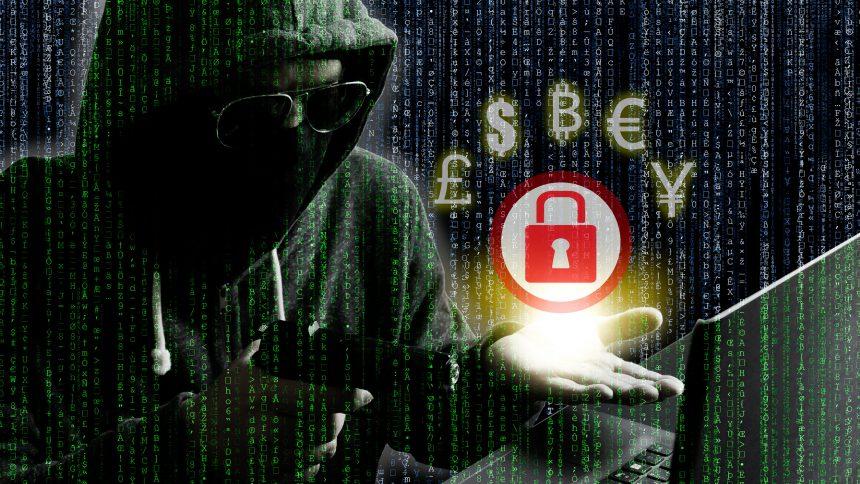In the ever-evolving landscape of cybersecurity threats, one particularly concerning tactic has gained notoriety: the ‘Virus/Malware Infections Have Been Recognized’ scam. This fraudulent ploy, designed to deceive and manipulate users, has recently come under the scrutiny of information security researchers. This article sheds light on this deceptive strategy, explores the associated dangers, delves into the tactics employed, and provides guidance on how to avoid and mitigate its malicious effects. Additionally, we’ll offer valuable tips to help you guard against such annoying threats in the future.
Unmasking the ‘Virus/Malware Infections Have Been Recognized’ Scam
The ‘Virus/Malware Infections Have Been Recognized’ scam is a deceptive tactic used on rogue and untrustworthy websites. Its primary objective is to mislead users into believing that their devices are infected with unsafe software, prompting them to contact a counterfeit Microsoft Support service. This deceitful tactic operates through a series of false claims and fabricated warnings, ultimately leading users to call provided telephone numbers for assistance.
These deceptive web pages impersonate Microsoft’s official website, which lends an air of authenticity to the scam. Multiple pop-up windows appear on these fraudulent pages, displaying alarming messages about supposed threats on users’ devices. The messages aggressively encourage users to take action by calling the provided helpline numbers.
It is crucial to emphasize that all the information disseminated by this scam is entirely fabricated, and it has no affiliation with Microsoft Corporation or any of its products or services.
How the Deception Unfolds
Once users initiate contact by dialing the counterfeit helpline, the scam unfolds. Scammers on the other end pose as ‘expert technicians’ and claim to provide assistance in areas such as malware removal, security installation, and subscription renewal, among others.
During these deceptive conversations, victims may be coerced into revealing personal information, engaging in financial transactions, or even downloading and installing malicious software, which can include trojans or ransomware, posing significant harm to their systems and data.
One particularly troubling aspect of these scams is the request for remote access to users’ devices. This is often facilitated through legitimate software, granting the fraudsters unauthorized access to sensitive information and system controls.
The Dire Consequences for Victims
The activities of these criminals encompass a range of unsafe and malicious actions. They may include disabling or removing legitimate security tools, installing counterfeit anti-virus software, extracting data, acquiring funds, and infecting computer systems with various forms of malware. The consequences of these actions can be highly detrimental to both individuals and organizations.
The sought-after data is diverse and includes usernames and passwords for various online accounts like emails, social networks, data storage services, e-commerce platforms, online banking, and cryptocurrency wallets. Furthermore, personally identifiable information such as ID card details and passport scans or photos are prime targets for these malicious actors. Financial data, including banking account details and credit card numbers, is also at risk of compromise.
Scammers employ various techniques to obtain this sensitive information, which may involve phone-based tactics to coerce victims into divulging their data. Alternatively, they can direct victims to enter their information into fraudulent phishing websites or malicious files. Information-stealing malware is another method utilized by cybercriminals to quietly harvest data from compromised systems.
One concerning aspect of these cybercrimes is the potentially exorbitant cost of the ‘services’ offered by these criminals. In many cases, they demand payment in cryptocurrencies, pre-paid vouchers, gift cards, or even cash hidden in packages. These methods are chosen because they are challenging to trace, reducing the likelihood of perpetrators facing legal consequences and making it more difficult for victims to recover their money.
Furthermore, individuals who fall victim to these scams may find themselves targeted repeatedly. Their information is often sold or shared among criminal networks, perpetuating the cycle of victimization and further complicating efforts to protect personal data and financial assets.
Dealing with ‘Virus/Malware Infections Have Been Recognized’
Mitigating the threats posed by the ‘Virus/Malware Infections Have Been Recognized’ scam requires vigilance, awareness, and action.
Vigilance and Awareness
- Critical Thinking: When confronted with alarming messages or warnings, approach them with a critical mindset. Question their authenticity and legitimacy before taking any action.
- Awareness: Stay informed about common online threats, deceptive tactics, and the latest developments in cybersecurity. Share your knowledge with friends and family to protect them from falling victim to similar scams.
Action Steps
- Isolate the Affected System: If you’ve engaged with the scam and suspect an infection or unauthorized access, isolate the affected system from your network to prevent the potential spread of malware.
- Data Recovery: If you have backups, use them to restore your system to a clean state. Ensure that your backups are free from malware before restoration.
- Seek Expert Assistance: Dealing with complex malware or potential data breaches may require professional cybersecurity assistance. Consult experts to assess the situation and recommend appropriate actions.
Safeguarding Against Future Threats
To protect yourself and your digital environment from deceptive threats like ‘Virus/Malware Infections Have Been Recognized’ in the future, consider these tips:
- Stay Skeptical: Be cautious when faced with alarming messages and warnings. Take your time to assess their authenticity before taking any action.
- Regular Backups: Maintain up-to-date backups of your important data to minimize the impact of potential data loss caused by malware or cyber threats.
- Reputable Security Software: Utilize reputable antivirus and anti-malware software to add an extra layer of protection against online threats.
- Software Updates: Keep your operating system and software applications up to date with the latest security patches to address vulnerabilities.
In conclusion, the ‘Virus/Malware Infections Have Been Recognized’ scam preys on fear and panic, leading users to contact counterfeit support services. Understanding these deceptive tactics, staying informed, and practicing good cybersecurity habits are essential to safeguard your digital environment and protect yourself from the deceitful schemes of cybercriminals.





